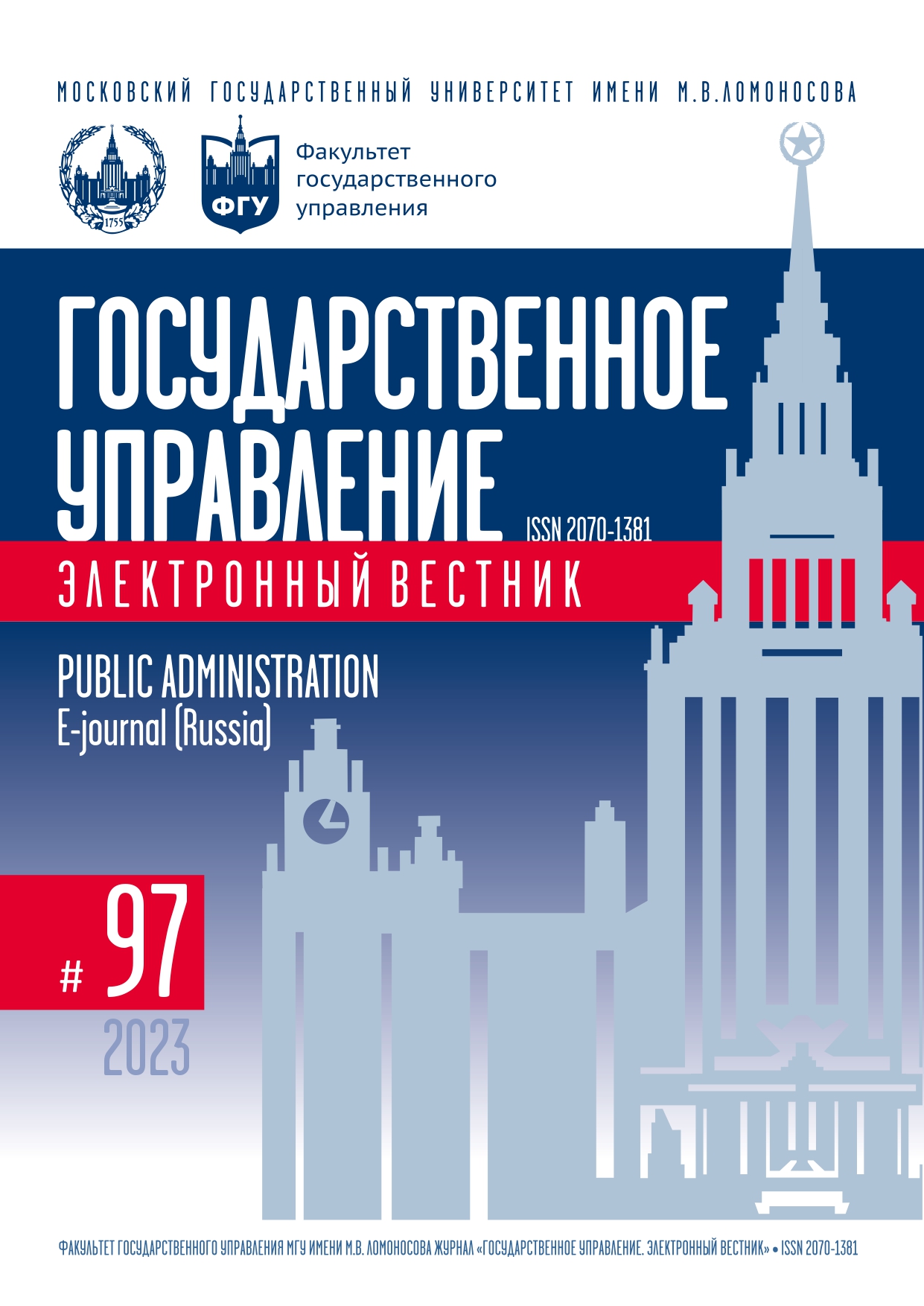Prospects for Moldova’s Integration into NATO
Keywords:
Moldova, NATO, Transnistria, Russia, Ukraine, integration, military-political bloc, “delegated subjectivity”, neutrality, special military operation, regional securityAbstract
The article is devoted to the analysis of the prospects for the integration of the Republic of Moldova into NATO. The foreign policy orientation of Moldova and its military-political status are a problem of a regional scale, which has become aggravated with the start of Russia’s special military operation in Ukraine. The aim of the article is to define a model for the integration of modern Moldova into NATO at the political level. During the study, the following tasks were solved: the history of interaction between the Republic of Moldova and NATO was analyzed, the nature of relations between Chisinau and the North Atlantic Alliance in the context of Russia’s special military operation in Ukraine was determined, and the prospects for Moldova’s integration into NATO were determined, taking into account the regional and global situation. Through the use of system analysis, geopolitical approach, retrospective analysis, historical and comparative analysis as a methodological basis, the author came to the following conclusions: under the current political leadership, Moldova will actively move towards integration with Western political and military-political structures; unable to constitutionally abolish the neutral status of the republic, the leadership of Moldova chose the path of de facto integration into NATO with the nominally existing neutral status of the country, taking advantage of the fact that the neutrality of Moldova is not recognized by the world community and is not guaranteed by anyone; if such a model is successfully tested, it is possible that it will be used by NATO and other military-political blocs in relation to other states de facto dependent on the United States and other Western countries. It is of interest to study the possibility of developing political tools to neutralize the activity of the North Atlantic Alliance in the eastern direction, taking into account the fact of the “delegated subjectivity” of the organization.
References
Васильев В.И. Европейский путь Молдовы: иллюзии и действительность // Анализ и прогноз. Журнал ИМЭМО РАН. 2019. № 3. С. 59–72. DOI: 10.20542/afij-2019-3-59-72
Игнатьев В.В. Приднестровье в тисках внешнего давления: Актуальные вызовы региональной безопасности // Постсоветский материк. 2015. № 4(8). С. 115–122.
Лавренов С.Я. Молдавию встраивают в восточноевропейский «пояс обороны» НАТО // Научно-аналитический журнал Обозреватель — Observer. 2022. № 3–4. С. 23–38. DOI: 10.48137/2074–2975_2022_3–4_23
Малышев Д.В. Политика нейтралитета на постсоветском пространстве на примере Туркменистана и Молдавии // Свободная мысль. 2019. № 6(1678). С. 183–193.
Харитонова Н.И. Возможные последствия подписания Соглашения об ассоциации Республики Молдова с Европейским союзом// Государственное управление. Электронный вестник. 2014. № 43. С. 39–54.
Харитонова Н.И., Максимов А.С. Взаимодействие России с ключевыми геополитическими оппонентами в условиях гибридной войны: комплексный стратегический подход // Государственное управление. Электронный вестник. 2022. № 95. С. 108–123.
DOI: 10.24412/2070-1381-2022-95-108-123
Шаповалов Б.А. Туманные перспективы улучшения молдавско-российских отношений в условиях наметившегося дрейфа Молдовы в ЕС и НАТО // Молдово-Приднестровский регион. 2021. № 5–6. С. 73–78.
Cebotari S. The Evolution of the East-European Space’s Geopolitical Architecture // Science Time. 2019. № 1(61). P. 36–46.
Kurtov A. The CSTO, GUAM: Transformation of the Post-Soviet Area // Central Asia and the Caucasus. 2008. № 3–4. P. 262–276.
Laumulin M. Eastern Partnership in the Geopolitical Context of Post-Soviet Space // Central Asia and the Caucasus. 2014. Vol. 15. № 1. P. 16–33.
Tolstov S. Ukraine’s Foreign Policy after the Orange Revolution // Central Asia and the Caucasus. 2005. № 5(35). P. 82–90.

